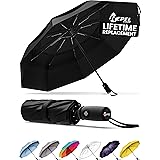Gone Too Soon art installation organizers call for safe drug supply to prevent overdose deaths
Thousands of purple poppies form a flowing river of grief with hope for a better future as part of an art installation at Winnipeg’s Canadian Museum for Human Rights.
Each purple poppy represents someone who has died as a result of substance use and includes a message of support, says drug overdose activist Janis Gillam, who helped create the project. The flowers are part of the Gone to Soon art installation which aims to destigmatize substance use addiction and push for changes in the province, like access to a safe drug supply.
On Saturday people were invited to add their own poppies and messages of support to the art piece on the third floor of the museum.
“For me, it’s a river of grief and release,” Gillam said.
“Art … is so visual so people can relate. People see it. People see the poppies and they read the messages. If you read the messages there’s very few that don’t say, ‘You are loved, you are missed and we’re sorry.'”

The poppies offer people an outlet for their grief, Gillam said. Visitors were encouraged to write messages of support for loved ones to add to the display in the Garden of Contemplation.
“It’s not just about remembering our loved ones but also sending a clear message to our federal government that we want a safer regulated supply,” says drug overdose activist Arlene Last-Kolb.
“These types of deaths they are often stigmatized … it was also very important to visualize for everybody these deaths so that people would really remember that we are talking about people.”
Last-Kolb said she won’t allow herself to feel stigmatized for her son’s death. She wants to find solutions to save lives, not debate the morality of substance use.
Action out of grief
Last-Kolb’s son Jesse died in July 2014 and Gillam’s daughter Phoebe died in 2020 from fentanyl poisoning.
Gillam’s poppy is for her daughter, telling her how much she is loved and missed by her parents and children, and her sorrow in the system failing her.
People often think it will never happen to those around them but addiction can happen to anyone, she said.
“Substances grip people and you make a wrong decision … and it follows you forever,” Gillam said.

While it’s a sad day for many, she hopes the art piece gives people hope while celebrating and honouring those who have died due to toxic drug poisoning, Last-Kolb said.
That’s why naloxone training was also available for those who visited the art installation. Jonny Mexico, Winnipeg co-ordinator for the Manitoba Harm Reduction Network, was on hand to provide naloxone training and talk about opioid overdoses.
Naloxone is a drug that temporarily reduces the effects of an opioid overdose.
Mexico said they recently administered naloxone to someone who appeared to be experiencing an opioid overdose. They called 911 and administered the drug, which helped revive the person as they waited for first responders.
They say this shows why naloxone needs to be available in workplaces, schools and carried by individuals, because overdoses can happen anywhere.
“We really want to make sure that everybody that has anybody in their life that’s using substances whether prescribed or not prescribed is aware of naloxone and how to use it,” Mexico said. “Naloxone absolutely saves lives.”
Gillam hopes people who participated in the poppy art piece will be inspired to create and share their own projects to raise awareness and provide education in their communities.

Gillam believes there needs to be access to a safe drug supply in Manitoba. She says Minister of Housing, Addictions and Homelessness Bernadette Smith and Premier Wab Kinew are making changes and she is hopeful they know what to do.
Change is needed now, Last-Kob says, because 53 people died from suspected drug overdoses in Manitoba in April.
“All of the hard work is going to pay off … speaking up we’re going to save lives,” Last-Kolb said.
“I’m going to honour and remember everybody that they were a part of this change. That the 2,945 people that have died since my son died are all being remembered.”
View original article here Source









